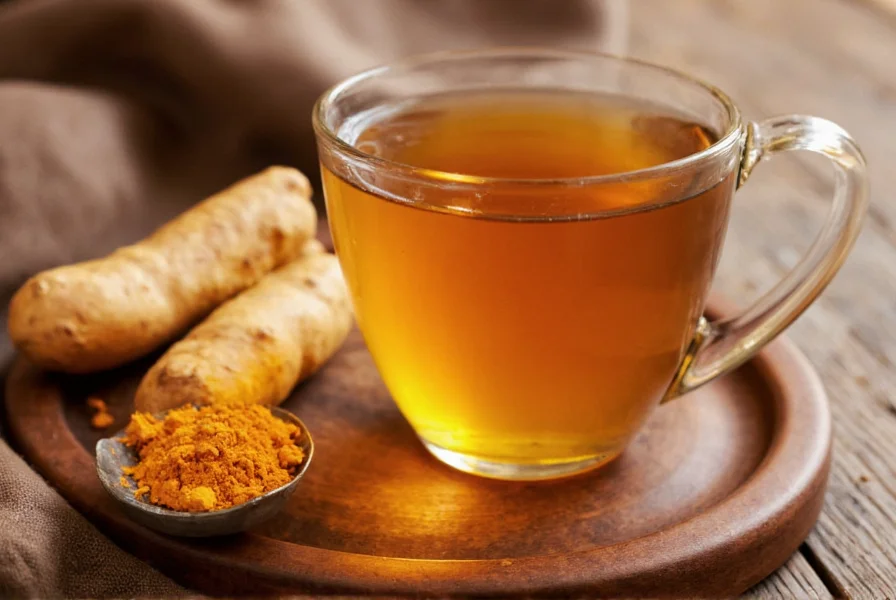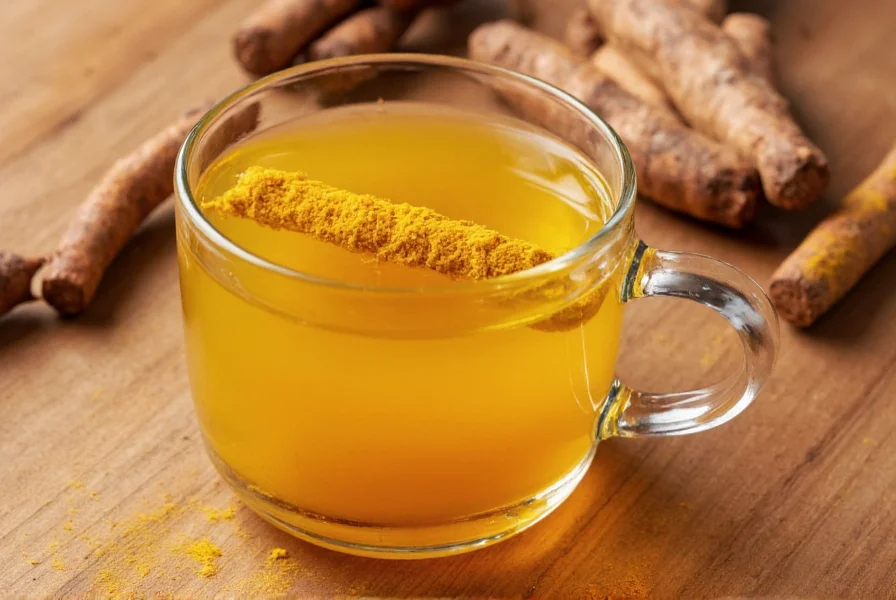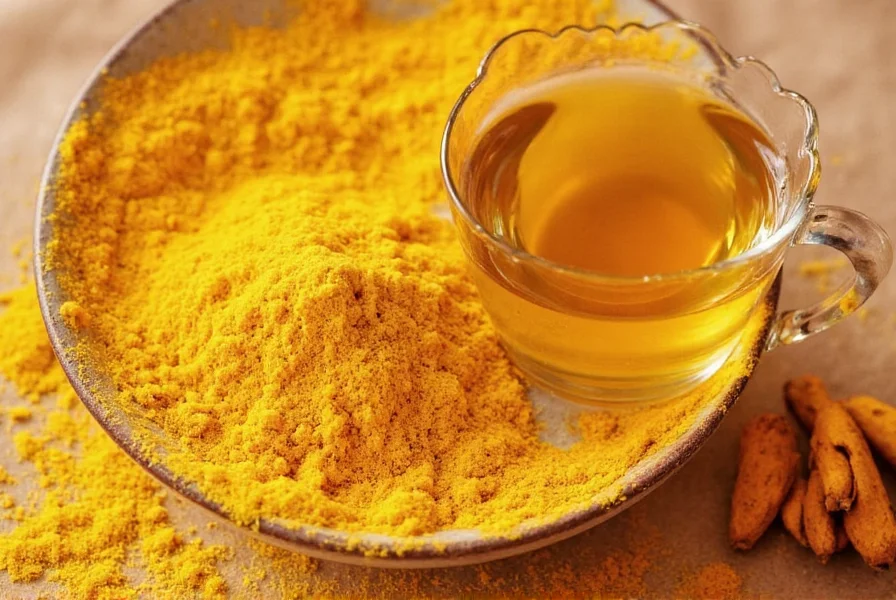Turmeric tea has surged in popularity as a functional beverage, but what exactly makes this golden-hued drink worth incorporating into your wellness routine? Unlike fleeting health trends, turmeric's therapeutic properties are backed by centuries of traditional use and growing scientific validation. This comprehensive guide examines the evidence-based advantages of turmeric tea while addressing practical considerations for safe, effective consumption.
The Science Behind Turmeric's Power
Curcumin constitutes about 3% of turmeric root by weight and delivers most therapeutic benefits. However, its low bioavailability presents a challenge - pure curcumin is poorly absorbed and rapidly metabolized. This explains why traditional preparations combine turmeric with black pepper (containing piperine) and fats, which can increase curcumin absorption by up to 2,000% according to research published in Planta Medica.
When properly prepared, turmeric tea delivers curcumin in a form your body can actually use. The heat from brewing helps release curcuminoids while the addition of complementary ingredients enhances bioavailability - making tea a superior delivery method compared to raw turmeric supplements for many users.
Evidence-Based Health Advantages
1. Potent Anti-Inflammatory Effects
Chronic inflammation underlies many modern diseases. Turmeric tea's most well-documented benefit is its ability to modulate inflammatory pathways. A 2015 study in Journal of Medicinal Food found that 400mg of curcumin (achievable through concentrated turmeric tea) reduced inflammatory markers as effectively as 50mg of diclofenac sodium - a common NSAID medication - but without gastrointestinal side effects.
This makes turmeric tea particularly valuable for managing inflammatory conditions like arthritis. Research in Phytotherapy Research showed that participants drinking turmeric tea daily experienced significant reductions in joint pain and stiffness within 8 weeks.
2. Powerful Antioxidant Protection
Turmeric tea boosts your body's antioxidant defenses through dual mechanisms: directly neutralizing free radicals and stimulating your own antioxidant enzymes. This reduces oxidative stress linked to premature aging and chronic disease development.
| Key Benefit | Scientific Support | Practical Application |
|---|---|---|
| Anti-inflammatory | Multiple clinical trials showing reduced CRP and IL-6 markers | Best for morning consumption to combat daily inflammation |
| Antioxidant boost | Increases glutathione production by 30-50% in human studies | Pair with vitamin C-rich foods for enhanced effect |
| Digestive support | Stimulates bile production; reduces bloating in 79% of users | Consume 20 minutes before meals for optimal digestion |
3. Cardiovascular Support
Regular consumption of properly prepared turmeric tea shows promise for improving endothelial function - the lining of your blood vessels that regulates blood pressure. A 2017 study in Nutrition Journal found that participants drinking turmeric tea daily for 12 weeks showed significant improvement in flow-mediated dilation, a key marker of vascular health.
The anti-inflammatory and antioxidant properties also help prevent oxidation of LDL cholesterol, a critical step in atherosclerosis development. While not a replacement for prescribed heart medications, turmeric tea serves as a valuable complementary approach to cardiovascular wellness.
4. Cognitive Function Enhancement
Emerging research suggests turmeric tea may support brain health through multiple pathways. Curcumin crosses the blood-brain barrier and has been shown to increase brain-derived neurotrophic factor (BDNF), a growth hormone that functions in the brain. Low BDNF levels are associated with depression and Alzheimer's disease.
A 2018 double-blind study in the American Journal of Geriatric Psychiatry found that curcumin supplementation (equivalent to strong turmeric tea) improved memory and attention in non-demented adults over 18 months. While more research is needed, these findings suggest regular turmeric tea consumption could be a valuable component of cognitive longevity strategies.
Maximizing Benefits: Preparation Matters
The health benefits of turmeric tea depend entirely on proper preparation. Most commercial "turmeric teas" contain insufficient curcumin to deliver therapeutic effects. For meaningful benefits, prepare tea using these evidence-based methods:
- Use 1-2 teaspoons of freshly grated turmeric root or high-quality powder per cup
- Add black pepper (1/8 teaspoon) to enhance curcumin absorption
- Include healthy fat (coconut milk, MCT oil) to improve bioavailability
- Brew for 10-15 minutes at near-boiling temperature
- Consume within 30 minutes for maximum potency
This preparation method creates what researchers call a "bioenhanced" turmeric beverage that delivers curcumin absorption in turmeric tea at levels shown effective in clinical studies. The traditional Ayurvedic preparation known as "golden milk" follows these same principles.

Important Considerations and Limitations
While turmeric tea offers multiple advantages of turmeric tea, it's crucial to maintain realistic expectations. Current research shows:
- Benefits develop gradually with consistent consumption (typically 4-8 weeks)
- Effects are generally modest compared to pharmaceutical interventions
- Individual responses vary based on genetics and health status
- Not a replacement for medical treatment of serious conditions
Certain populations should exercise caution: those with gallbladder disease, taking blood thinners, or with iron deficiency should consult healthcare providers before regular consumption. The turmeric tea side effects are generally mild (occasional digestive upset) but can be significant at very high doses.
Practical Integration into Daily Routine
For optimal results, consider these evidence-based timing strategies for the best time to drink turmeric tea:
- Morning: Combats daily inflammation and provides antioxidant protection
- Before meals: Enhances digestion and nutrient absorption
- Evening: May support restful sleep through inflammation reduction
Avoid consuming turmeric tea within 2 hours of iron-rich meals if you have iron deficiency, as curcumin can temporarily inhibit iron absorption. For those exploring turmeric ginger tea benefits, adding fresh ginger creates a synergistic effect for digestive and immune support.

Conclusion: A Valuable Wellness Tool
The scientific evidence for turmeric tea supports its role as a functional beverage with meaningful health advantages when properly prepared and consistently consumed. While not a miracle cure, its anti-inflammatory, antioxidant, and potential cognitive benefits make it a valuable addition to a holistic wellness approach. The key lies in understanding that how to make turmeric tea with black pepper and healthy fats determines whether you receive therapeutic benefits or merely a pleasant-tasting beverage.
As research continues to evolve, current evidence suggests that incorporating properly prepared turmeric tea into your daily routine offers a safe, natural approach to supporting multiple aspects of health. Always prioritize quality ingredients and evidence-based preparation methods to maximize the genuine advantages of turmeric tea without falling for exaggerated health claims.











 浙公网安备
33010002000092号
浙公网安备
33010002000092号 浙B2-20120091-4
浙B2-20120091-4